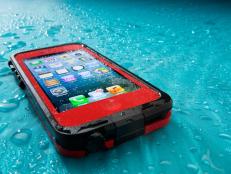How to Protect Your Personal Data While Traveling
Reduce your risk of getting hacked or having your identity stolen with these tips from the pros.

Photo By: Courtney Keating
Photo By: P D BURNETT
Photo By: Tim Robberts
Photo By: serts
Photo By: Ezra Bailey
Photo By: Petar Chernaev
Photo By: Jordan Siemens
Photo By: Chronis Jons
Photo By: JGI/Tom Grill
Change Passwords
Remove Sensitive Data From Your Devices
Ensure Security on Your Devices is Up to Date
Be Vigilant Against Theft
Don’t Use USB Chargers in Public Spaces
Emert warns there’s a growing trend of “juice jacking,” where criminals can gain access to information on your device via the USB cable since it contains two wires—one for power, and one for data transfer.
Criminals can also use the USB cable to install ransomware, which allows them to hold your device ransom in exchange for money. Instead of using a USB port, Emert suggests using the AC power brick that plugs into a power outlet.
Don’t Trust Public Wi-Fi
Use a Personal Hotspot Connection
Turn Off Wireless Features You Don’t Need
Use Your Debit Card as a Credit Card
The exception would be using your debit card at an airport ATM, especially if it’s with a well-known banking institution. “The risk of your information being compromised at that ATM are relatively low.”




